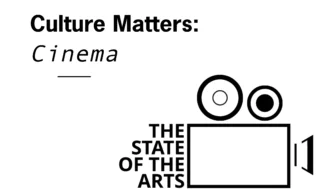Review: Jodie Foster’s Money Monster
June 1, 2016

Money Monster arrives at an opportune moment: the perpetrators of the 2008 financial crash have gone unpunished, and the anger at deepening income inequality has manifested itself in the insurgent presidential candidacies of Bernie Sanders on the left and Donald Trump on the right. While the mainstream media has largely ignored Sanders, it has prostrated itself before Trump; affording seven times more coverage to the presumptive GOP presidential nominee than any other candidate, amounting to $2 billion of ‘earned’ – non-paid – media coverage so far. With such a wellspring of anger on which to draw, Money Monster seems perfectly poised to tap into the populist rage on both sides of the ideological divide.
Lee Gates (George Clooney) is the Jim Cramer-esque host of the Money Monster cable news show; a self-styled financial guru who doles out his market tips with a large dose of showmanship. One of Gates’ favoured stocks, IBIS Clear Capital, craters following a ‘glitch’ in its high-frequency trading algorithm, and $800 million is wiped off its value. IBIS’s CEO Walt Camby (Dominic West) cancels his interview with Gates and is incommunicado on a private jet to Geneva. While all this is unfolding, Kyle Budwell (Jack O’ Connell), manages to sneak onto the Money Monster set posing as a deliveryman. Budwell had invested the $60,000 he inherited when his mother died in IBIS stock, on Gates’ assurance that IBIS was a safe bet. Budwell pulls out a gun and straps a bomb vest to Gates, taking Gates hostage live on the air and threatening to detonate the explosives if he doesn’t get answers.
 One could best describe Money Monster as Lumet-lite: it clearly seeks to emulate the tone of Lumet’s classic satires Dog Day Afternoon (1975) and Network (1976), responding to a similar set of social upheavals. But Money Monster‘s screenplay lacks Frank Pierson’s pathos or Paddy Chayefsky’s satirical bite; the character inconsistencies and implausible plot twists reek of endless rewrites and clutter what should be a very simple premise. The screenplay fails to generate a scintilla of sympathy for Gates, lowering the stakes considerably; and Julia Roberts’ role as Gates’ director has been expanded without adequately justifying the decision beyond the presence of a star. What results is an unruly mess of media satire and high-octane thriller, hitting talking points and plot points while never honouring either.
One could best describe Money Monster as Lumet-lite: it clearly seeks to emulate the tone of Lumet’s classic satires Dog Day Afternoon (1975) and Network (1976), responding to a similar set of social upheavals. But Money Monster‘s screenplay lacks Frank Pierson’s pathos or Paddy Chayefsky’s satirical bite; the character inconsistencies and implausible plot twists reek of endless rewrites and clutter what should be a very simple premise. The screenplay fails to generate a scintilla of sympathy for Gates, lowering the stakes considerably; and Julia Roberts’ role as Gates’ director has been expanded without adequately justifying the decision beyond the presence of a star. What results is an unruly mess of media satire and high-octane thriller, hitting talking points and plot points while never honouring either.
Jodie Foster has made a decisive step behind the camera, honing her craft on TV shows like House of Cards and Orange is the New Black. Though Money Monster is her fourth directorial feature, it is on a grander scale than her previous work, and she rises to the dual demands of a character piece with an action dimension. As one would expect, the performances are all assured, if hampered by sub-par writing. Gates is the kind of role which has become a Clooney archetype: the outwardly remote but inwardly yearning careerist who exudes a kind of shattered nobility waiting to be reconstructed by an honourable cause and/or the love of a good woman; it’s the kind of thing he can do in his sleep, but he does it with considerable charm. But it is O’ Connell who steals the show; he is on the verge of becoming a major star and this performance goes some way to solidifying that status; bringing a raw, skittish intensity that is mesmerising to watch next to Clooney’s poise.
One of the things that Money Monster brings into sharp relief is just how slow cinema has become in responding to social changes; a fact exacerbated by an ever-accelerating news cycle. The mechanics of film financing and production increasingly obviate the ability to address contemporary concerns. Compared to the Internet, cinema is a lumbering beast lagging behind the zeitgeist, and the spectre of Occupy Wall Street hovers over Money Monster. Part of the problem is that Money Monster isn’t bringing anything fresh to the table: Truth (2015) is a much better study of mainstream media pieties, and The Big Short (2015) deconstructs financial chicanery with more wit and insight. Ultimately, Money Monster is a Hollywood liberal parable that is nowhere near as astute or cynical as it clearly thinks it is, lapsing into Capra-esque wish fulfilment mode in its overcooked dénouement.
The film’s most salutary lesson is delivered by the shady CEO, and ostensible villain of the piece, Camby, who points out that we were all happy to look the other way when the dice was falling in our favour and investors were making money, that we were all complicit when the casino went bust. This is an unpleasant truth that Money Monster seems unwilling to countenance, content to play to the gallery on issues like the financialisation of the economy, regulatory capture and the incestuous relationship between the media and Wall Street. If the film industry is serious about luring an adult audience away from their box sets with mature mid-budget fare, it must deal in the nuance that has informed TV’s second golden age.
Filed under: Film, TV & Tech
Tagged with: dominic west, film, George Clooney, Jack O'Connell, jodie foster, satire



Comments